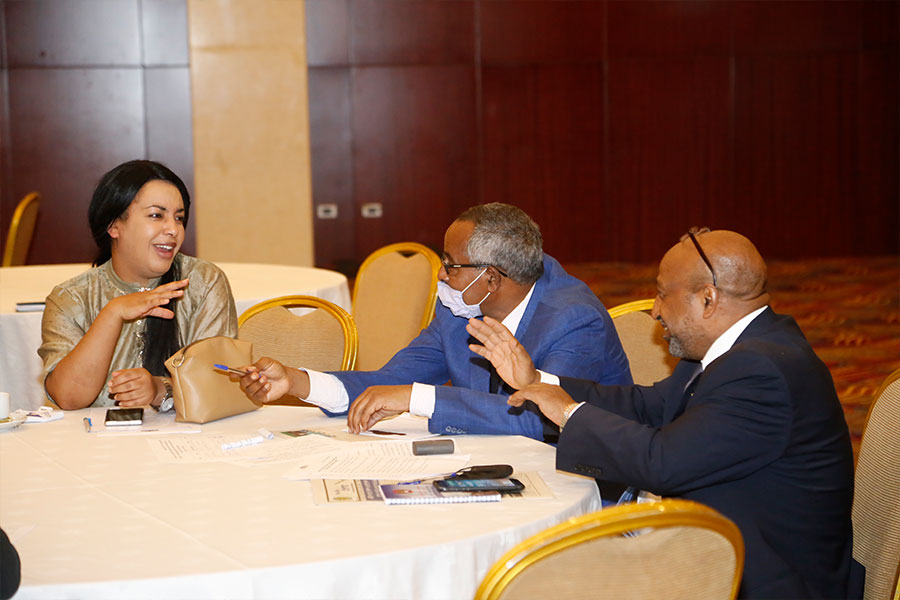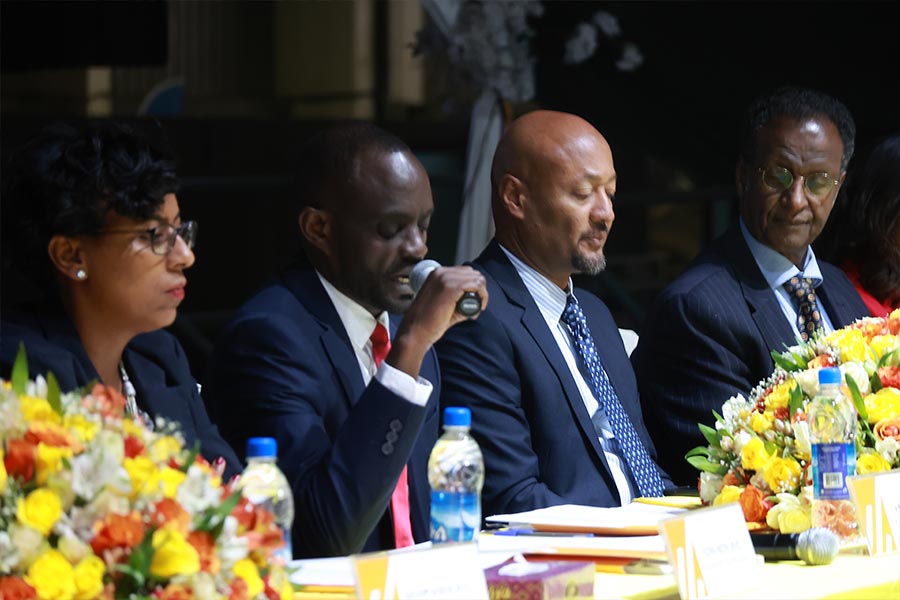
The tripartite Labour Advisory Board constituting labour, employers and authorities representatives, has recently selected its members after two years hiatus.
Its absence has created a disconnect between the workforce and the government, leaving legislative matters unattended.
Officials from the Ministry of Labour & Skills claim to have been transforming the ministerial organ while contacts with the confederations were severed, despite several attempts made by members of the previous advisory board.
“We’ve been under reform,” said State Minister Assegid Getachew.
Two weeks ago, a letter signed by Minister Muferihat Kamil was sent to the Confederation of Ethiopian Trade Union (CETU) and Confederation of Ethiopian Employers Association (CEEA) to nominate their members a fortnight ago, with hopes of the Board's reinstatement.
Following the engagement, CETU has designated Kassahun Follo, president; Ayalew Ahmed, vice president; Diribsa Legesse, head of the industrial relations & organization; Tolera Deresa, the secretary general; and Nasra Abadosh, head of Women Affairs from its side.
According to Kassahun, managing working conditions and labour rights violations has become challenging without an active advisory board for the past two years. He believes that the delay in passing the minimum wage law was due to the unavailability of board members during the last meeting, which can be attributed to the board's absence.
He said despite promises made by the government of addressing labour union concerns, the delay has caused employees to become frustrated. Many workers struggle to survive on the existing lower pay in recent years owing to inflation.
The Confederation of Ethiopian Trade Unions (CETU) was established in 1993 as an umbrella organization for various trade unions across the country. It has managed to garner nearly a million members throughout the years with a growing number in the informal sector.
The Confederation President recalled premeditating a rally with hopes of voicing their concerns after repeated attempts to reach officials. Reconstitutions of the advisory board have been one of the demands of the Confederation along with improving working conditions, and revising the income tax rate.
"One of our asks has been addressed," Kassahun told Fortune.
From the employers' side, the Confederation of Ethiopian Employers Association (CEEA) recently received a missive from the Ministry.
The Confederation, which has eight federations under its umbrella, aims to tackle issues concerning opening a letter of credit, foreign currency access, income tax and foreign investment attraction following the reinstatement of the Advisory Board.
The letter received by the Confederation had three fewer members than the others' requested number. It had expressed dissatisfaction with the unequal representation and sent a letter to the Ministry while appointing an equal number of board members.
"Five should have been the number," said Tadele Yimer, president of the Association.
He is among the selected members with Vice President Dawit Moges, Transport Employers' Association President Birhane Zeru, Oromia and Harari employer's association presidents Jemal Abagro and Shiferaw Degaga last week.
The Labour Advisory Board, which had existed for more than three decades since the formation of the National Labour Law in 1985, was constituted under the law to examine matters of employment services and working conditions through an advisory service to the Ministry of Labour & Skills. It is also tasked with providing feedback on legislation related to the labour force.
Minister Muferihat Kamil and State Minister Assegid Getachew from Labour & Skills, along with Lelise Neme, commissioner of the Ethiopian Investment Commission, Hassen Mohammed, state minister for Industry and Dereje Duguma(MD), state minister of Health, were selected from the government side.
Assegid said that the board is committed to addressing the issues and feedback of the parties involved. He mentioned that they have been diligently working on a draft of labour inspection regulations, which will be reviewed by the advisory board.
Labour law experts recommend the advisory board stand its ground and adopt new strategies to remain relevant as it has stayed inactive following the amendment of the labour law.
According to Mehari Redai (PhD), an associate professor of law at Addis Ababa University, the necessary governmental reforms should have been implemented in a timely manner. He stresses the importance of engaging with policymakers to achieve shared goals.
The expert recommends regular meetings with specific agendas be conducted to bring about meaningful changes in both the private sector and policymaking, thereby improving labour conditions and social protection.
"The Board should come in handy and bring evolving working structures," he said.
PUBLISHED ON
Jun 06,2023 [ VOL
24 , NO
1205]

Fortune News | Jul 11,2021

Radar | Jan 14,2023

View From Arada | Sep 08,2024

Radar | Jun 05,2021

Radar | Dec 02,2023

Dec 22 , 2024 . By TIZITA SHEWAFERAW
Charged with transforming colossal state-owned enterprises into modern and competitiv...

Aug 18 , 2024 . By AKSAH ITALO
Although predictable Yonas Zerihun's job in the ride-hailing service is not immune to...

Jul 28 , 2024 . By TIZITA SHEWAFERAW
Unhabitual, perhaps too many, Samuel Gebreyohannes, 38, used to occasionally enjoy a couple of beers at breakfast. However, he recently swit...

Jul 13 , 2024 . By AKSAH ITALO
Investors who rely on tractors, trucks, and field vehicles for commuting, transporting commodities, and f...

Jul 12 , 2025
Political leaders and their policy advisors often promise great leaps forward, yet th...

Jul 5 , 2025
Six years ago, Ethiopia was the darling of international liberal commentators. A year...

Jun 28 , 2025
Meseret Damtie, the assertive auditor general, has never been shy about naming names...

Jun 21 , 2025
A well-worn adage says, “Budget is not destiny, but it is direction.” Examining t...